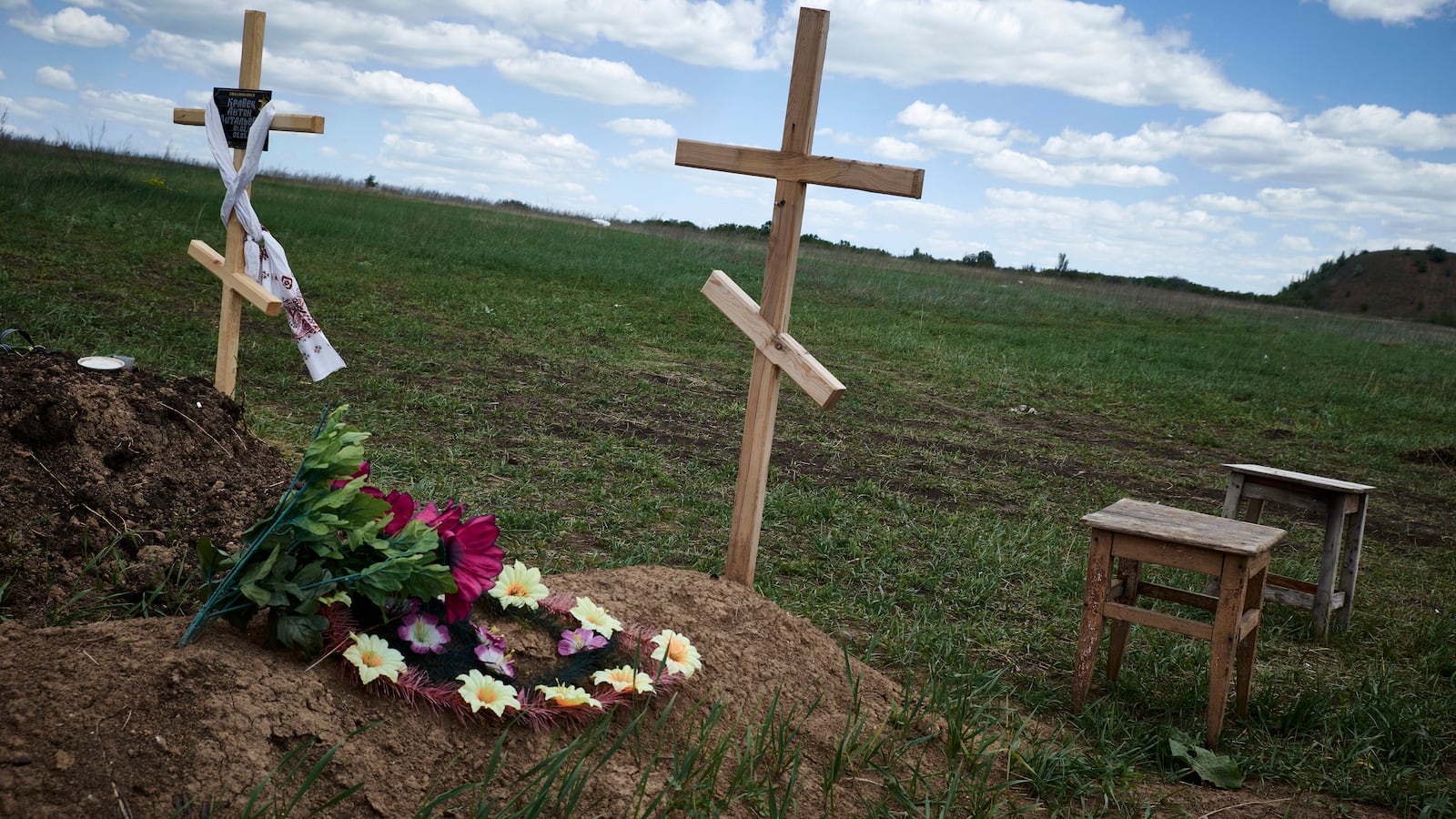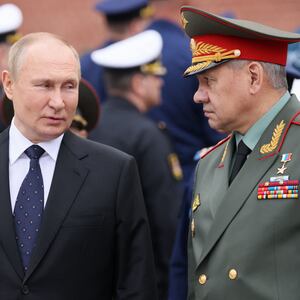Russian troops executed one of their own men in Kharkiv after the Feb. 24 invasion and then concealed his identity so they could use him in an elaborate propaganda ploy.
That’s according to a report released Wednesday by the independent news outlet Verstka, which tracked down the identity of the young soldier nearly six months after his death in the Kharkiv region.
Ivan Levankov was killed on the first day of Russia’s full-scale war against Ukraine, as reports of Russian troops targeting civilians began to trickle out. And his death at the time was no secret—it was captured practically in real time by a Ukrainian woman named Karolina Perlifon who posted footage from the dramatic scene on Instagram.
“The Russians killed my mother!” Perlifon wrote in the viral post, alongside gut-wrenching footage of herself recounting how Russian forces had opened fire on her and her mother as they tried to flee the invading troops.
In the midst of the chaos, she wrote, two young Russian troops “who were barely holding their weapons” had rushed towards them, and one of them threw her to the ground to shield her from heavy artillery fire, yelling, “Don’t shoot… we’re your [guys].”
That soldier was immediately shot dead and collapsed on top of her, she said.
Russian propaganda went into overdrive with claims a Russian soldier had “heroically” been killed by Ukrainian “Nazis” as he shielded two civilians from artillery fire. The story was a win for the Kremlin’s narrative that Russian troops were on a humanitarian mission, and it spread like wildfire in Russian media.
But the identity of the soldier was always omitted, and he quickly became known only as “the unknown soldier” in pro-Kremlin accounts of that day.
And according to Perlifon, the secrecy surrounding his identity had only one goal: to keep the public from ever finding out he was killed by his own men for helping Ukrainians.
“He died saving us,” Perlifon was quoted telling Verstka. “That soldier was with us, and he was shot dead by his own people.”
The Russian soldier who’d been with Levankov at the time of his death, Valery Vasilyev, was wounded that day and treated at a Ukrainian hospital. Footage released by Ukraine’s Security Service later showed him identifying Levankov for the first time as he testified that they had been ordered by their commanders to block roads out of Kharkiv and fire at civilians as they tried to evacuate.
But when they spotted Perlifon and her mother, they tried to help get them to safety, he said, and “the lieutenant colonel noticed that we were saving civilians, and he gave the order to shoot us and them.”
It was not immediately clear if Vasilyev is still in Ukrainian custody, as a list of Russian prisoners published by Ukrainian authorities was no longer available.
According to Verstka, Levankov wasn’t laid to rest until late June, when a regional newspaper in his hometown in Russia’s Smolensk region announced his funeral on social media with no details about the circumstances of his death. Wreaths from Russia’s Defense Ministry were laid at his gravesite, where his date of death was listed as Feb. 24.
But while local authorities and religious figures have made a show of publicizing and attending the funerals of other Russian troops from the area killed in Ukraine, Verstka reports that Levankov’s burial was bizarrely kept secret. Local lawmakers and religious authorities from the small town where he’d grown up knew nothing about it, and the deputy governor said his name wasn’t listed in the region’s list of military deaths, even though he had featured so prominently in pro-Kremlin propaganda.
For Perlifon, it makes perfect sense for Russian authorities to erase Levankov from public memory, because, as she told Verstka, for them “it’s easier to simply bury him, and let no one know about him or remember him. To tell the truth? They will never in their lives tell the truth.”







